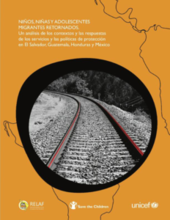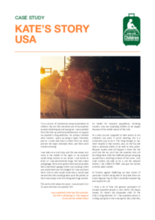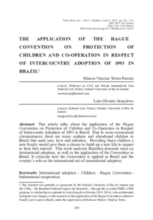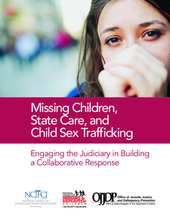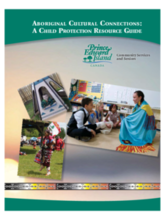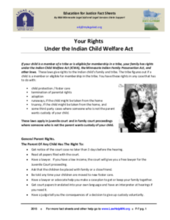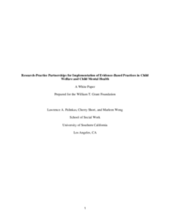This page contains documents and other resources related to children's care in the Americas. Browse resources by region, country, or category.
Displaying 2821 - 2830 of 3191
Entre 2013 y 2014, aumentó de manera considerable el número de niños, niñas y adolescentes no acompañados que migran desde los países de América Central hacia México y los Estados Unidos (EU).
The case study, which accompanies the Global Study on Sexual Exploitation of Children in Travel and Tourism, tells the story of Kate, a woman from the US who was sexually exploited as a child.
In the fall of 2007, Ramsey County Community Human Services (RCCHSD) was one of five sites chosen as recipients of a grant from the U.S. Department of Health and Human Services Children’s Bureau (USDHHS) for the“Using Comprehensive Family Assessments to Improve Child Welfare Outcomes” project, to develop a model of comprehensive family assessment to be used in child welfare.
This article discusses the effect of international migration on the accumulation of human capital among Mexican youths aged 15–18 who are left behind.
This article talks about the application of the Hague Convention on Protection of Children and Co-Operation in Respect of Intercountry Adoption of 1993 in Brazil.
This technical assistance brief answers the question “What steps can a judge take when a child runs away or goes missing from care?” The brief is intended to educate juvenile and family court judges in the United States on the steps to be taken to assist in in locating and recovering children who go missing from care.
This resource guide offers a fairly comprehensive guide to engaging with the Aboriginal community on Prince Edward Island, Canada. It includes a history of the use of residential schools for Aboriginal children, as well as a description of the widespread removal of Aboriginal children from their families and communities for adoption placement in the 1960s through the 1980s.
This fact sheet describes the rights of native children and families under the Indian Child Welfare Act (ICWA) in the United States.
This paper addresses the disconnect between research and practice in regards to child welfare and child mental health services in the US.
This Guide, written in Spanish, features a compilation of several social protection programs, services and public policies that resulted in the prevention of family breakdown and in the support of families and communities in caring and protecting their children. All these examples are taken from the Latin American region, Italy and Romania.


